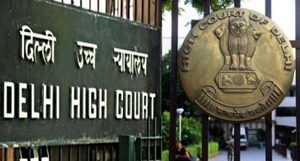Delhi HC trashes Medha Patkar's plea to introduce new witness in defamation case against L-G Saxena
By IANS | Updated: July 30, 2025 15:29 IST2025-07-30T15:21:00+5:302025-07-30T15:29:40+5:30
New Delhi, July 30 The Delhi High Court has dismissed a plea filed by social activist Medha Patkar ...

Delhi HC trashes Medha Patkar's plea to introduce new witness in defamation case against L-G Saxena
New Delhi, July 30 The Delhi High Court has dismissed a plea filed by social activist Medha Patkar challenging a trial court’s refusal to allow her to examine an additional witness in a decades-old defamation case against V.K. Saxena -- the present Lieutenant Governor of Delhi.
A single-judge Bench of Justice Shalinder Kaur upheld the March 18 order of the Judicial Magistrate First Class (JMFC), which found Patkar’s application to be “a deliberate attempt to delay the trial rather than a genuine necessity.”
The case dates back to December 2000, when Patkar filed a complaint alleging that a newspaper advertisement published on November 10, 2000, was defamatory. The complaint named three individuals as accused, including the publisher and editor of the newspaper, as well as V.K. Saxena.
While the proceedings against two of the accused were quashed following a compromise and apology in 2008, the trial continued against Saxena.
After Saxena pleaded not guilty, Patkar’s side began leading evidence. Between 2018 and 2024, four prosecution witnesses were examined, including Patkar herself. The trial, however, faced prolonged delays due to several factors, including settlement efforts, the Covid-19 pandemic, and repeated adjournments.
In February, Patkar moved an application under Section 254(1) of the Criminal Procedure Code (CrPC), seeking the trial court’s permission to examine a new witness who was not included in the original list.
Judicial Magistrate First Class Raghav Sharma of Saket Courts rejected Medha Patkar’s application to summon an additional witness, citing the prolonged pendency of the case and the timing of her request.
The trial court said, “The present case has been pending for 24 years, and the complainant has already examined all witnesses listed at the time of filing the complaint.”
The magistrate court, in its order passed on March 18, pointed out that Patkar had earlier filed an application under Section 254(2) of the CrPC to summon additional witnesses, yet failed to mention the current witness at that time.
“If this witness was truly material to her case, she would have either included them in the original list or at least named them in the earlier application,” the order said.
It added that the emergence of the new witness only after the examination of all other prosecution witnesses “raises serious doubts about the genuineness of this request”.
In her petition filed before the Delhi High Court under Article 227 of the Constitution, Patkar argued that the trial court had erred by treating her Section 254(1) application as if it were under Section 254(2) of the CrPC.
Patkar’s counsel further argued that denying the right to present a witness -- who was willing to appear voluntarily -- amounted to a miscarriage of justice.
Patkar had not delayed the trial deliberately, and earlier delays were mostly due to external factors, her counsel submitted.
It was also emphasised that the CrPC does not prohibit a complainant from producing a voluntary witness at a later stage merely because the witness was not named in the original list, particularly when no summons from the court was requested.
In contrast, advocate Gajinder Kumar, representing Saxena, opposed Patkar's plea on the grounds of delay and procedural abuse. Kumar argued that the additional witness had not been mentioned in the original list submitted 25 years ago, nor in any previous examination or cross-examination, and claimed the move was an afterthought designed to fill gaps in the complainant’s case.
Introducing new witnesses at such a late stage, Saxena’s counsel contended, would only prolong the already delayed trial.
In a detailed 19-page judgment, the single-judge Bench of Justice Shalinder Kaur acknowledged the importance of a fair trial but emphasised that proceedings cannot continue indefinitely, especially when “the criminal justice system is already burdened with an overwhelming pendency of cases”.
“A perusal of the petitioner’s application under Section 254(1) of the CrPC, seeking to summon a fresh witness, reveals that no sufficient cause has been disclosed for the failure to produce the proposed witness, i.e., Ms. Nandita Narayan,” it said, adding that the application failed to explain both the delay in bringing the witness and her relevance at such a belated stage.
The Justice Kaur-led Bench observed that while Section 254(1) gives the complainant the right to lead evidence, it does not mean unlimited liberty to produce new witnesses without justification.
Accepting Patkar’s argument, it said, would render Section 254(2) redundant and open the door for endless trial delays, concluding that the trial court had “correctly interpreted” the scope of Sections 254(1) and 254(2) of the CrPC.
Dismissing Patkar’s petition, the Delhi HC opined, “The Impugned Order has carefully analysed the petitioner’s contentions, harmonised statutory interpretation, and considered the long pendency and past conduct to reach a legally sustainable conclusion.”
Disclaimer: This post has been auto-published from an agency feed without any modifications to the text and has not been reviewed by an editor
Open in app